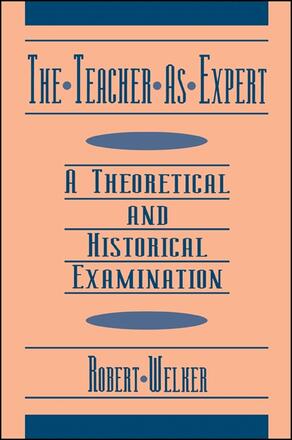
The Teacher as Expert
A Theoretical and Historical Examination
Alternative formats available from:
Description
At a time of increasing pressure for teachers to become more professional and more technically competent, this book examines in a critical fashion whether teachers should be considered experts. Written in straightforward and accessible prose, Welker examines the concept of expertise through the ideas of notable educational thinkers in the twentieth century—beginning with E. P. Cubberley and George S. Counts and concluding with a chapter on critical theory and the ideas of Maxine Greene and Henry Giroux. Other chapters examine such thinkers as Willard Waller, Daniel Lortie, Alan Tom, Philip Jackson, and Ivan Illich. Each chapter establishes an historical and ideological context and evaluates how the social character of the expert matches the responsibilities. While the idea of the teacher assuming the role of educational expert is gaining increased credibility in the current reform movement, this book shows that the concept fails to describe the senses of moral and social competence required of the teacher. Also the notion of the expert teacher might stand in the way of teachers forming the type of public partnerships necessary for them to complete their tasks adequately.
Robert Welker is Assistant Professor of Education at Wittenberg University.
Reviews
"The question of expertise in teaching runs to the heart of what we have become as a society. Experts are everywhere. What this means and whether this is a good thing are matters that need to be debated. Welker tells us that technology is not enough, and suggests that in teaching, as elsewhere, we can never get by without human judgment and deliberation over values. Welker serves to remind us that even the advocates of specializations and technique must reflect upon and defend their aspiration. "—Philip L. Smith, The Ohio State University